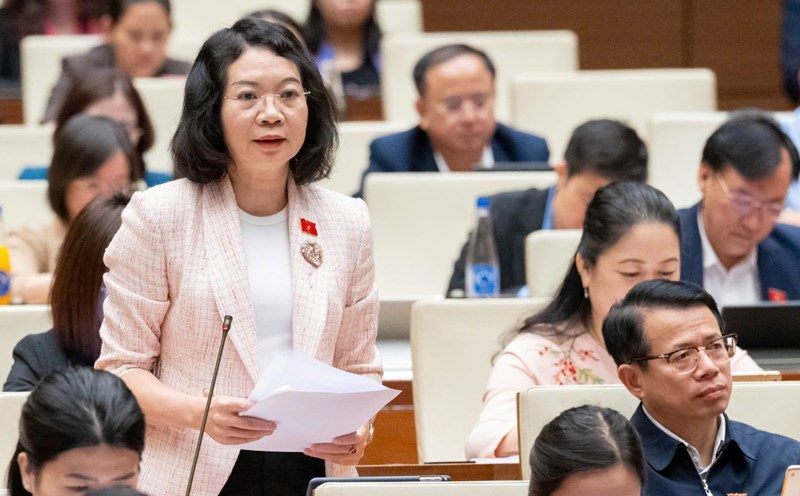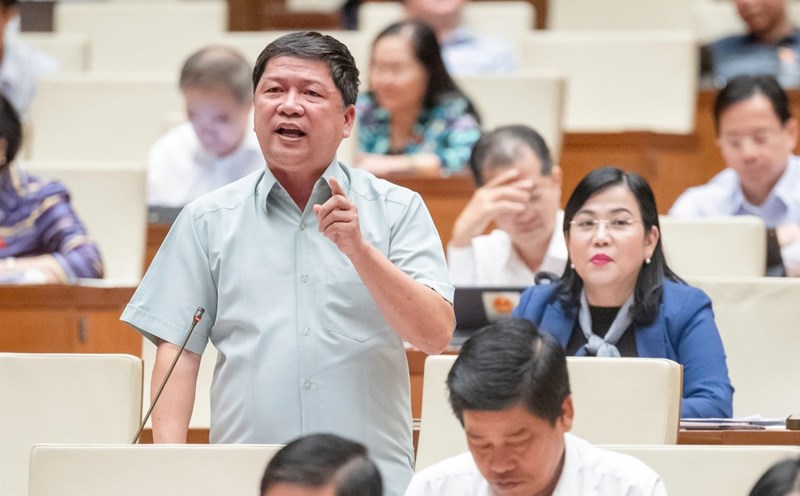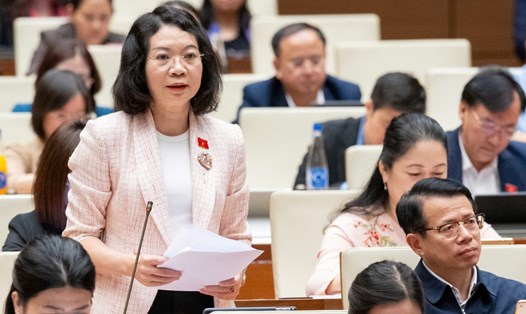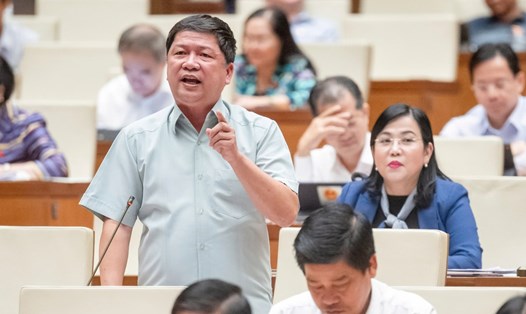On the afternoon of November 4, the National Assembly continued to discuss the socio-economic situation in plenary session.
Speaking, delegate To Ai Vang (Soc Trang delegation) proposed 5 issues in response to the increasingly profound impacts of climate change.
First, the Government studies and proposes that the National Assembly consider issuing a flood insurance policy.
Second, delegates expressed support for the Government's additional budget investment for 26 northern provinces and cities and Thanh Hoa province to support production recovery and stabilize people's lives; at the same time, they suggested that the Government prioritize and pay attention to improving the natural disaster forecasting and early warning system, especially through international cooperation.
Third, assign specialized ministries and branches to conduct surveys, prepare reports on maps, identify and evaluate areas with unstable geology to come up with strict planning and warning plans. Research to propose specific standards in construction design suitable for geology and terrain.
Fourth, currently, countries around the world have implemented rainwater harvesting. Therefore, delegates proposed that the Government issue mechanisms and policies to encourage scientists and specialized agencies of relevant ministries and sectors to analyze, evaluate and issue specific regulations on standards, scales and appropriate conditions in each region in storing and using rainwater as a basis for people to feel secure in implementing.
Fifth, the Mekong Delta really needs the Government and the National Assembly to create stronger mechanisms and policies to help the region unblock foreign direct investment flows to create a breakthrough in investment and development in the coming time.
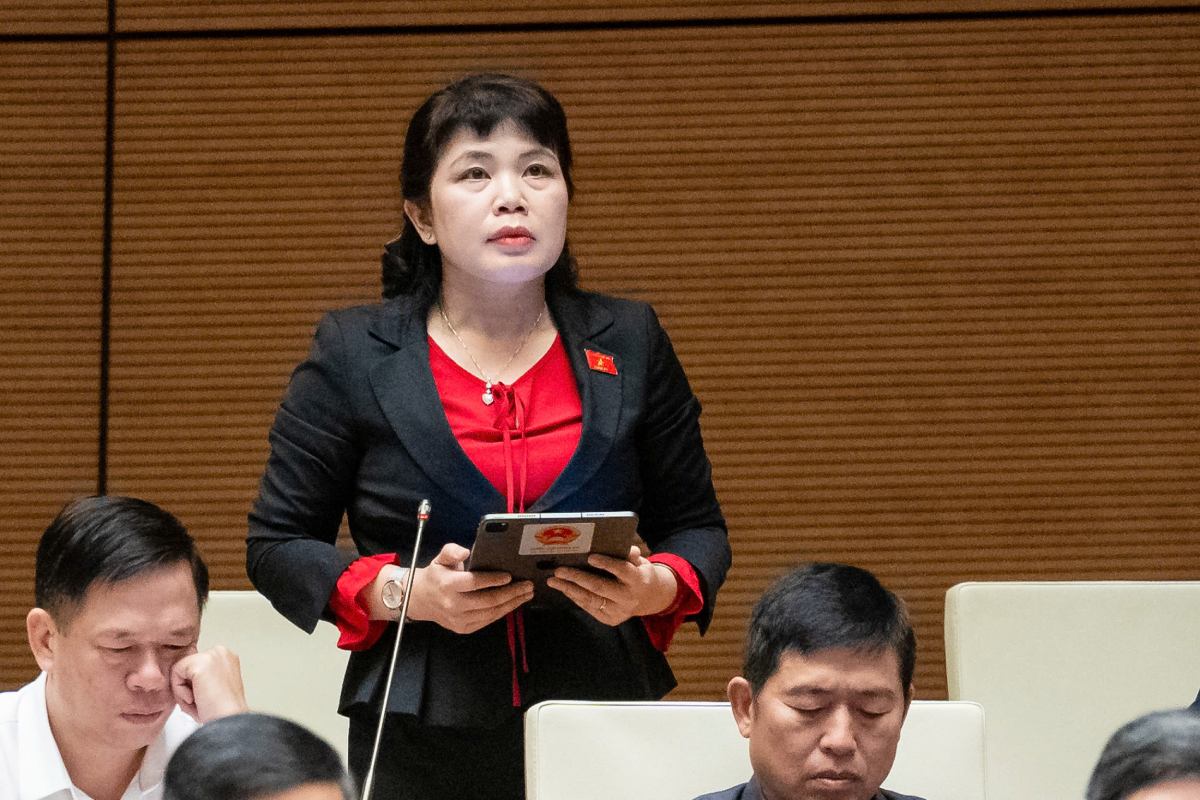
Speaking at the meeting, delegate Nguyen Thi Thu Ha (Quang Ninh delegation) said that recently, our country has suffered severe consequences from natural disasters, including storm No. 3 (Yagi) and storm Tra Mi.
According to the female delegate, Quang Ninh is where the eye of the storm passed, leaving behind a scene of devastation and destruction; factories, construction sites, and enterprises were stalled; many houses were flooded, collapsed, and submerged in floodwaters.
Delegates said that after the storms passed, there were still many problems. The government needed to pay more attention and direct more thoroughly to overcome them and support people and businesses.
Currently, the regulations, mechanisms and policies to support natural disaster recovery issued in the previous period have not been fully updated to include affected subjects in need of support; the content and level of support are still low compared to the enormous damage caused by storm No. 3.
Delegates suggested that the Government direct ministries, branches and localities to proactively propose and issue strong enough mechanisms and policies to support industries and sectors that are being severely affected, and develop a project to rebuild the economy after the storm.
Exempt, reduce, and extend taxes, fees, charges, and land rents for businesses, organizations, and people affected by damage; prioritize resource allocation to promptly fix incidents and damage to the transportation system, dikes, and irrigation reservoirs.
The Quang Ninh delegation also requested the Government to direct the review, revision and promulgation of mechanisms and policies to support agricultural, forestry and fishery production to restore production, and mechanisms to salvage ships and boats sunk due to natural disasters, ensuring safety of waterway traffic. Allocate capital to carry out investment in construction and renovation of the power grid to improve the reliability of power supply, ensuring safety against the effects of natural disasters.


